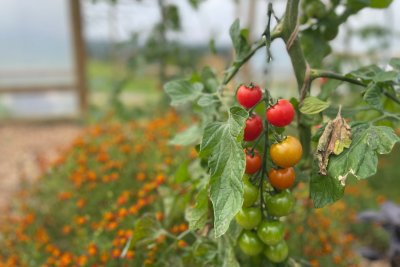Children growing up in poverty endure hunger and shame
New research from the University College of London sheds light on the feelings of children in low-income families

Thirty per cent of children are in poverty in the UK today. This number of has risen by 500,000 from 3.6million in 2010-2012, to 4.1 million in 2016-17.
This new research by UCL published today by Child Poverty Action Group has helped show that children in low-income families are going hungry and are being exposed to feelings of shame and social exclusion because of lack of money and food.
Larger and lone parent families are more at risk of food poverty reflecting the distribution of poverty more broadly. Lone parents, of which 90% are women, have been found to have faced the highest gap between living costs and incomes due to the cumulative impact of recent tax and welfare reforms.
Around one quarter of children in the study went hungry at times, despite the sacrifices their parents made.
'When I’m hungry I just can’t concentrate, it’s really, really hard for me to do that…so I just need to make my mind up and know that I will eat after five hours, seven hours when I get home [from school].’ Amara, age 15, inner London, whose family has NRPF.
One teenage girl, whose father (a widower) was in a low-paid NHS job, had £2 per day to spend on food at school (as did her siblings). She was sometimes forced to divide this so that she had £1 for a snack at break (by which time she was hungry) and £1 for lunch, which meant she did not always eat a proper meal.
Just over half (23 of the 45) of parents in the study ate too little food, went hungry, skipped meals and/or used food banks.
‘…last week I didn’t even eat for four days. […] And […] I have to lie to my kids and tell them I’ve eaten so that they’re okay, because as long as my kids are eating then I’m okay.’ Lone mother of three children.
While some schools do not differentiate between pupils entitled to free school meals and those who pay, other schools identify children on free school meals in particular by restricting the food options that they can select. This caused embarrassment for children.
‘It’s embarrassing, yeah, you have no money on your card and then you just watch them eat.’ Gideon, age 15, inner London, whose family has no recourse to public funds.
Children whose families have no recourse to public funds - usually because of unresolved immigration status - are not entitled to free school meals. But while some schools fund lunches for these children, others do not, with the result that children in these families simply go hungry during school.
‘Sometimes you don’t have enough energy, you cannot cope in the classroom so you have to like try and rest a bit. You just put your head on the table and you end up falling asleep in the classroom and you get in trouble for it.’ Emmanuel, age 14, inner London.
Just over half the young people did not have money to spend on food with their friends.
Some reported that their friends sometimes shared some of their own food, but as one of two brothers says: ‘… it’s only they want to give you like a bit, cos, it’s theirs, only a little bit.’
Gideon, 15, inner London : ‘Feels like I’m left out of the fun that happens and stuff . Like it just makes me feel empty.’ Emmanuel, 14, Gideon’s brother: ‘It makes me feel, like. What have I done? Like, what have I done?’
Most children and parents in the study were knowledgeable about dietary recommendations. Many parents said they would like to be able to afford more fresh vegetables and fruit. ’
I need to be careful of how much starch and carbohydrates I’m putting into my son’s body, which doesn’t help because this is the food that I’m only able to buy because I can’t afford more of the fruits and vegetables that he needs.’ Shaniya’s mother, inner London. whose son has a bowel disorder.
Just over half (26 of 48) of the children who completed the question in the self-completion questionnaire reported eating vegetables at least 5-6 times a week and only just over a third (17 of 47) reported eating fruit at least 5-6 times a week – far lower than the recommended five a day for fruit and vegetables.
More information on this research can be found in the recently published Living Hand to Mouth? Children and food in low-income families by Rebecca O Connell, Abigail Knight and Julia Brannen.
Published Tuesday 2 April 2019
Food Poverty: Millions of people in the UK struggle to get enough to eat. We’re working to change that through people-powered projects and campaigns that tackle the root causes of food poverty and ensure everyone has dignified access to healthy, affordable food.





